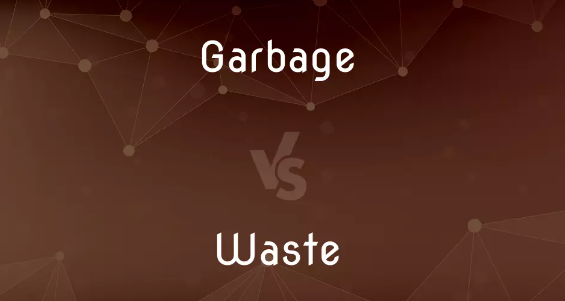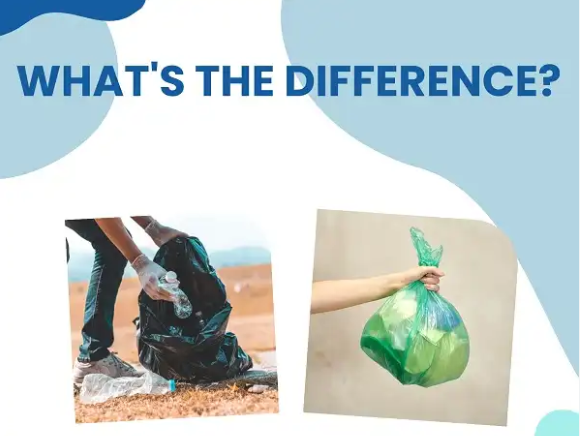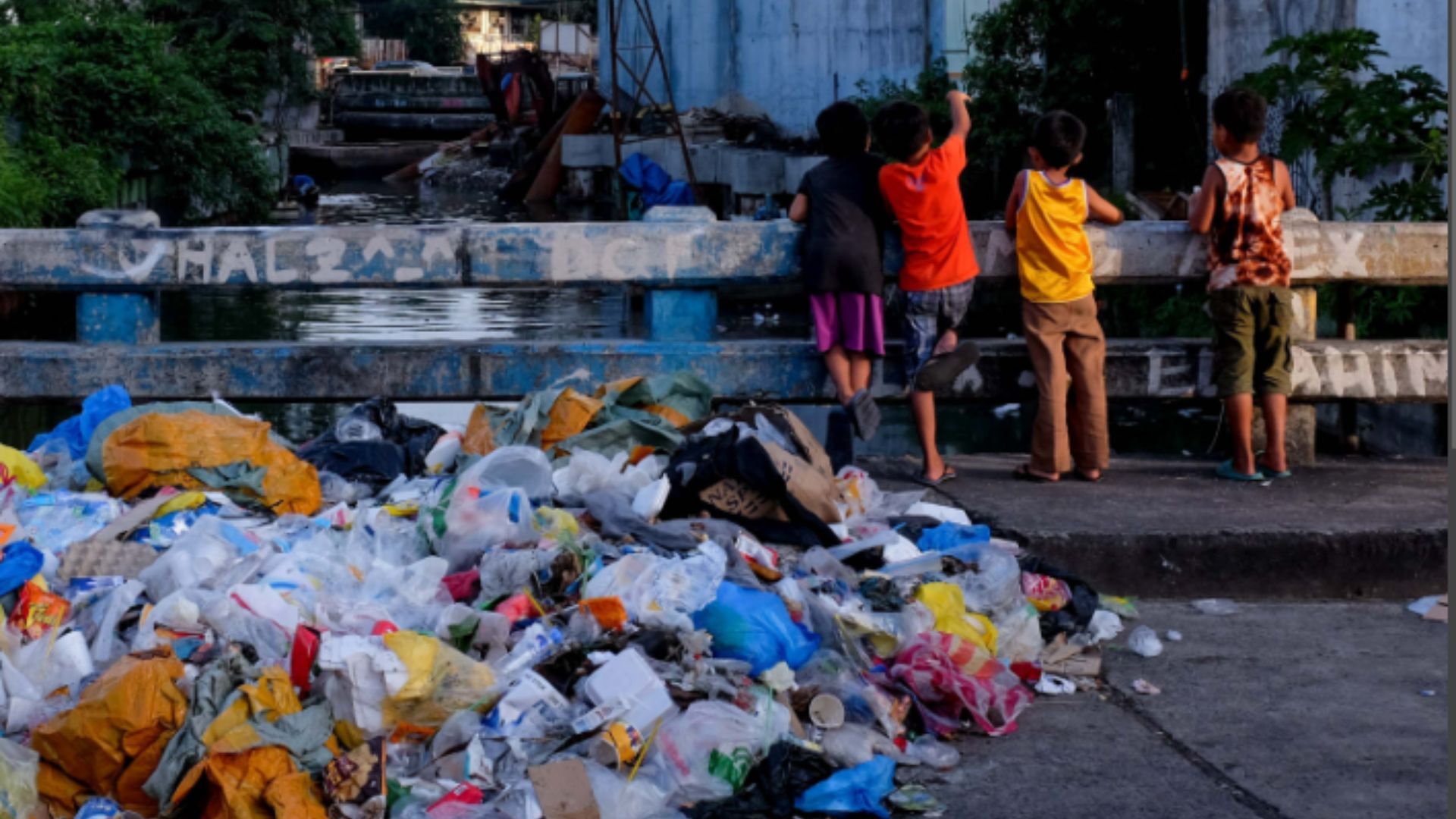People often interchange “garbage” and “waste” in everyday talk, but they have distinct meanings in environmental science and waste management. These distinctions are crucial in understanding the environmental impact of our daily activities and in making informed choices about recycling and disposal. In this article, we will delve into the key distinction between garbage and waste, shedding light on their unique characteristics and implications.
Garbage vs. Waste: Definitions
To begin our exploration, let’s clarify the definitions of these terms. Garbage refers to organic waste, primarily consisting of kitchen scraps, yard trimmings, and other biodegradable materials. This category includes items like food scraps, fruit peels, and grass clippings. On the other hand, waste encompasses a broader spectrum of discarded materials, including both organic and inorganic substances. Waste includes everything from packaging materials and plastics to old appliances and electronics.

Composition and Characteristics
Additionally, one fundamental difference between garbage and waste lies in their composition. Garbage is predominantly organic and biodegradable, which means it can break down naturally over time, contributing to the nutrient cycle in ecosystems. In contrast, waste contains a significant portion of non-biodegradable materials such as plastics, metals, and glass, which can persist in the environment for centuries, causing pollution and harm to wildlife.
Environmental Impact
To add on, the environmental impact of garbage and waste varies significantly. Garbage, being primarily organic, can be composted or turned into nutrient-rich soil through decomposition, making it a valuable resource for sustainable gardening and agriculture. In contrast, waste poses a more substantial threat to the environment due to the presence of non-biodegradable materials. These materials, when not properly managed, can lead to soil and water pollution, endangering ecosystems and wildlife.
Management and Recycling
Effective management and recycling efforts are essential to reduce the negative consequences of waste and garbage. Garbage is relatively easier to manage as it can be composted or converted into biogas through anaerobic digestion. These processes not only reduce the volume of garbage but also generate renewable energy and useful byproducts. Waste, on the other hand, requires more extensive and complex recycling methods to handle the diverse range of materials it contains, such as recycling facilities for plastics, metals, and electronics.
Resource Recovery
Resource recovery is a significant aspect of differentiating between garbage and waste. Properly managing garbage can transform it into valuable resources like compost, enriching soil and supporting sustainable agriculture. In contrast, waste often involves resource-intensive processes to recover valuable materials like metals, plastics, and electronic components. Moreover, recycling these materials conserves resources, reduces energy consumption, and lessens the demand for raw materials.
The Importance of Sorting
Furthermore, sorting plays a crucial role in the disposal and management of both garbage and waste. Proper separation of organic waste from recyclables and non-recyclables is essential to maximize resource recovery and minimize environmental harm. Municipalities and households must establish efficient waste sorting systems, guiding garbage to composting facilities and directing recyclables and non-recyclables to suitable processing centers.
Conclusion
In conclusion, the difference between garbage and waste lies in their composition, environmental impact, management, and resource recovery potential. Garbage, consisting mainly of organic materials, has the potential to be converted into valuable resources through composting and anaerobic digestion. Waste, which encompasses a broader range of materials, requires more complex recycling processes to recover valuable resources and reduce its environmental footprint. Understanding these distinctions is crucial for making informed decisions about waste disposal, recycling, and environmental conservation. By recognizing the unique characteristics of garbage and waste, we can work toward a more sustainable and responsible approach to managing our discarded materials, ultimately benefiting our planet and future generations.



